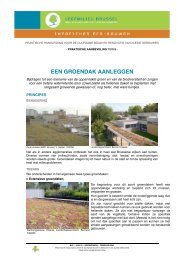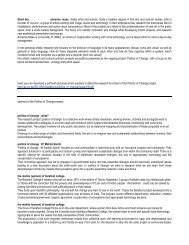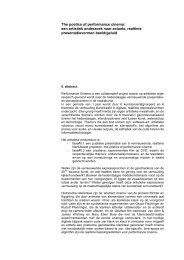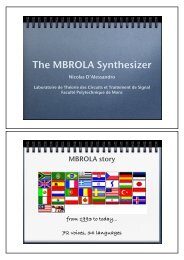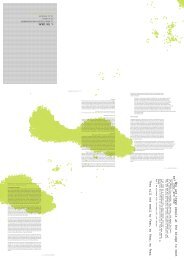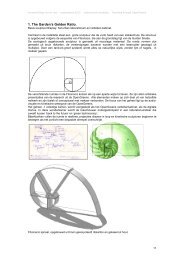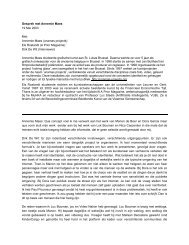MANIFESTO
MANIFESTO
MANIFESTO
You also want an ePaper? Increase the reach of your titles
YUMPU automatically turns print PDFs into web optimized ePapers that Google loves.
Industrial agrofuels are responsible for perverse subsidies to non-sustainable<br />
agriculture which threaten the food rights of billions of people. To make matters<br />
worse, food prices are increasing due to the rapid conversion from growing food<br />
crops to growing agrofuels.<br />
Sustainable energy policies require decentralization combined with a general<br />
decrease in energy consumption, while maintaining food security as an<br />
overarching objective of food and agriculture systems.<br />
7. Water Conservation is Central to Sustainable Agriculture<br />
Industrial agriculture has led to intensive water use and increased water<br />
pollution, reducing availability of fresh water. Drought and water scarcity<br />
in large parts of the world will increase due to changes in climate. Reducing<br />
intensive water use in agriculture is a vital adaptation strategy. Ecological and<br />
organic farming reduces demands for intensive irrigation while enhancing soil<br />
capacity for retention of water while improving water quality.<br />
8. Knowledge Transition for Climate Adaptation<br />
Climate change is the ultimate test for our collective intelligence as humanity.<br />
Industrial agriculture has destroyed vital aspects of knowledge of local<br />
ecosystems and agricultural technologies which are necessary for making a<br />
transition to a post-industrial, fossil fuel-free food system. The diversity of<br />
cultures and of knowledge systems required for adapting to climate change<br />
need recognition and enhancing through public policy and investment. A new<br />
partnership between science and traditional knowledge will strengthen both<br />
knowledge systems and enhance our capacity to respond.<br />
9. Economic Transition Toward a Sustainable and Equitable Food Future<br />
Current economic and trade regimes have played a major role in creating<br />
perverse incentives that increase carbon emissions, accelerating climate change.<br />
The growth paradigm based on limitless consumption and false economic<br />
indicators such as gross national product (GNP) are pushing countries and<br />
communities toward increasing vulnerability and instability. Trade rules and<br />
economic systems should support the principle of subsidiarity - that is favouring<br />
local economies and local food systems which reduce our carbon footprint while<br />
increasing democratic participation and the quality of life.<br />
6 / 7




